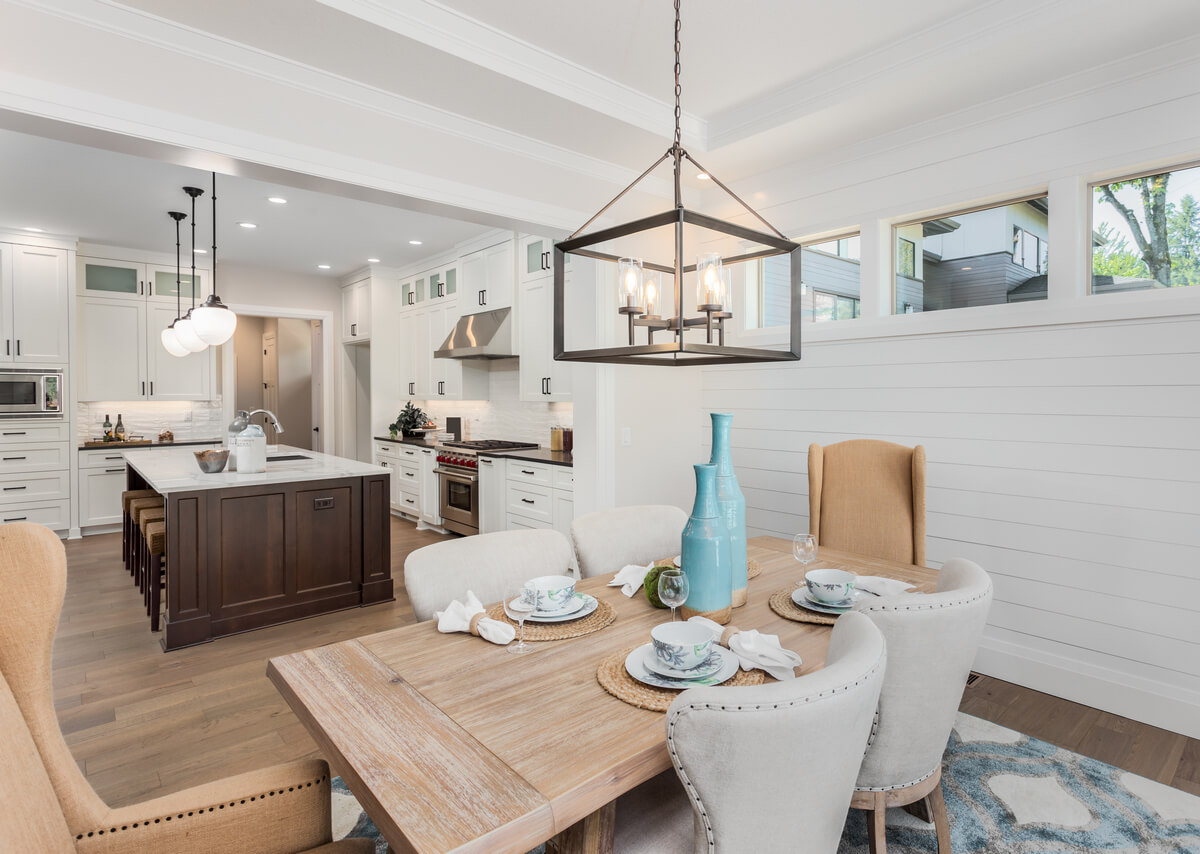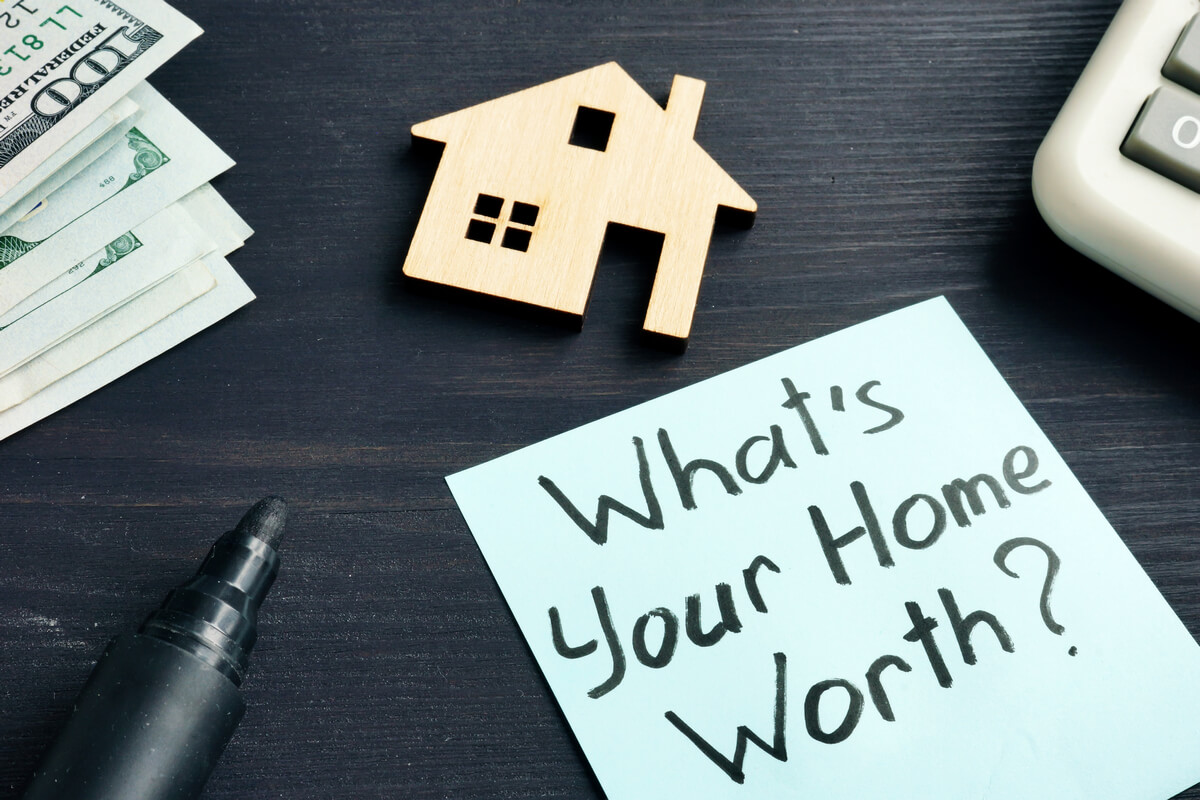Everyone wants their home to appreciate in value. After making monthly mortgage payments for years, it’s a relief to know that your property is worth more than you bought it for. You don’t have to worry about selling at a loss, and you feel confident that you made a wise investment.
Most homes do increase in price alongside inflation, but some appreciate more than others. Unfortunately, some also decline in value over the years. It’s impossible to predict with certainty which homes will rise in value and which will drop, but there are some common indicators that a property will appreciate. During your home search, look for these six signs that suggest a house’s value will increase:

1. Location
Location can be the sole determining factor in a home’s price. Even within the same town, the exact same home could be listed for two dramatically different prices based on the neighborhood. If the homes in the area immediately surrounding your prospective house have seen a notable rise in value in the last few years, your new home will likely appreciate as well.
On the other hand, homes in areas with higher rates of crime may not see such an increase. You never know how neighborhoods will transform over time, though. Sometimes, homeowners get a great price for a home in a less popular neighborhood, but the neighborhood eventually undergoes a transformation that leads to a sharp increase in property values.
Some of the best areas for homeowners are the neighborhoods that surround the most popular communities today. In a few years, as people get priced out of the most popular neighborhoods, they’ll start to look for homes in the surrounding area, and the competition will drive up the prices.

2. Land
Land is a finite resource, and as the population grows, more and more people will be competing for the same lots. Builders have virtually endless possibilities for the homes they construct, but you don’t have as many options for what to do with the land. Therefore, owning a great plot of land can be a wise investment.
Consider the size of the lot as well as the quality of the land. Large plots will always be valuable, but land that’s ideal for gardening or other functions is desirable, too. Even if the home is small or needs some work, your property will increase in value as available land becomes more scarce.

3. Local Housing Market
Most housing markets fluctuate over time, so it’s hard to know what will happen in the future. Some areas have reliably strong markets, though, so homes in these communities are almost certain to appreciate. For example, most suburbs of major cities or neighborhoods near large employers and universities will always be popular places to live.
You can look at the trends in the housing market over time in the area you’re considering. A slower but steady upward trend tends to be more reliable than major fluctuations in home prices.

4. Population Growth
In areas that see a consistently growing population, homes will appreciate due to supply and demand. You can research demographic information online for the cities you’re searching in to see whether the population in the area is increasing or declining. One of the biggest influences on population growth is employment opportunities. If the area has become a hub for a certain industry or is home to large and stable employers, you can expect property to increase in value.

5. Home Size
Larger homes aren’t necessarily more popular or competitive. Typically, homes that are similar in size to the rest of the neighborhood see the strongest price increases. The average home size in an area is often a reflection of the needs of that area. For example, smaller condos may be most popular in major cities, but homes with three or four bedrooms may be more popular in the suburbs.
You can likely see a trend in home sizes just by observing the typical listing in the area. However, you can also do more thorough research by checking the MLS with your realtor and looking at which homes sold the most quickly.

6. Home Condition
Some buyers think that newer homes or properties in perfect condition are the best investment. While it’s true that you probably won’t have to put as much money or work into these houses, homes that need a little fixing may have the strongest potential to appreciate.
You can get a slight fixer-upper for a lower price than a home in perfect condition, and the money you’d invest into making repairs could be worth the appreciation you see. This is less true for homes that need major repairs, though, as unexpected and costly problems are more likely to appear.
Even if you plan on staying in your home for a long time, it’s great to see the property rise in value. As you check out prospective homes in different neighborhoods, consider whether or not the homes look like they’ll appreciate. Ask your real estate agent for their input, too. Your realtor should know the area well, so they can give a thoughtful prediction on the future of the real estate market. If you make a careful decision on your home purchase, you could end up with an excellent return on investment.
————————
Michael Carr is the Co-Founder & COO of BrandFace, LLC. He is also a real estate branding expert and international bestselling author. As America’s Top Selling Real Estate Auctioneer, he has sold billions of dollars in commercial and residential properties.


